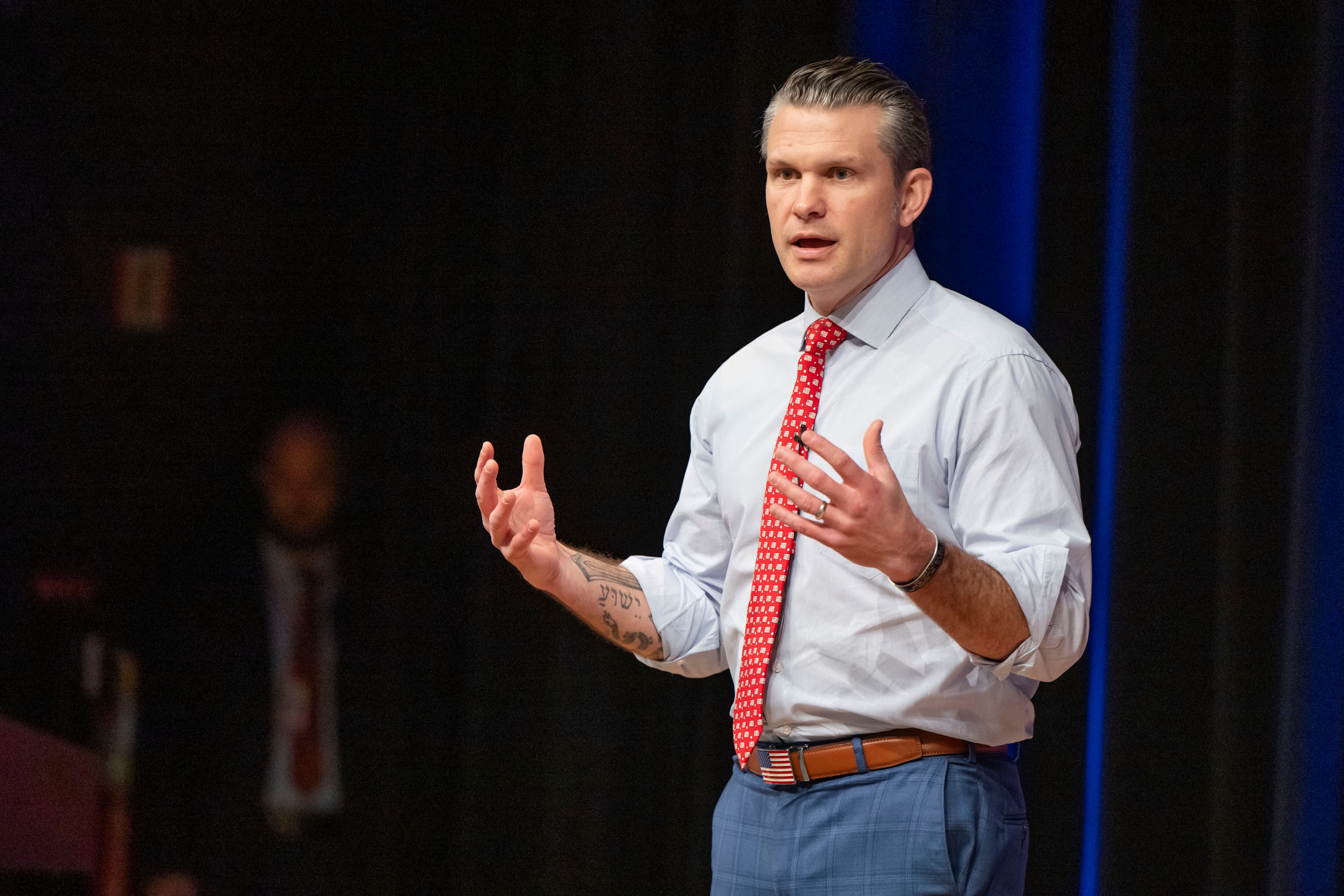Defense Secretary Pete Hegseth on Friday pledged to demonstrate to China that the United States will continue supporting its allies in the Indo-Pacific region.
The U.S., however, is not going to create unnecessary conflict with Beijing, Hegseth said in a question-and-answer session during a town hall with Defense Department personnel.
“We’re clear-eyed about the communist Chinese, the [People’s Republic of China], but we’re also not attempting to initiate conflict or create conflict where it otherwise doesn’t need to exist,” Hegseth said. “We’re going to stand strong with our partners. And then President Trump, at his strategic level, is the one who’s having the conversations to sort of ensure that we don’t ever have a conflict.
“We don’t want that, [the Chinese] don’t want that,” Hegseth continued. “We just have to remain strong in order to be in the best possible position.”
The Pentagon posted a transcript of the town hall Friday evening, after a livestream of the event was cut off following Hegseth’s 15 minutes of opening remarks.
Hegseth’s comments about China came after an Air Force official asked him whether the Defense Department would be more assertive in the “gray zone” area — short of war — to deter China and Russia.
“There’s gray zone activities that exist, some of which you can acknowledge, some of which you cannot,” Hegseth said. “But certainly, we want to send the signals to China that the [Indo-Pacific] area will be and continues to be contested.”
In response to a question about potential staff cuts at DOD, Hegseth also said that “there are thousands of additional … positions [across the Defense Department] that have been created over the last 20 years that don’t necessarily translate to battlefield success.”
“[There are] additional staff, additional layers of bureaucracy [and] additional flag officer positions that we would be remiss if we did not review,” he said.
Hegseth noted that the department operates in a “budget constrained environment,” and highlighted the armored cavalry unit at Fort Bliss, which has had to cut a series of upcoming training assignments due to tight budgets.
“When you’re living off of continuing resolutions and caps, and then you have contingency operations and things that change, suddenly you have shortfalls and now unit training falls by the wayside,” Hegseth said. “From my perspective, that’s completely unacceptable.”
Hegseth said that in addition to rooting out waste, fraud and abuse, the Pentagon needs to slash hierarchies and layers of bureaucracy that aren’t serving the military.
That could also involve a reduction in the number of four-star generals and flag officers, he said.
“We won World War II with seven four-star generals,” Hegseth said. “Today we have 44. Do all of those directly contribute to warfighting success? Maybe they do. I don’t know, but it’s worth reviewing to make sure they do.”
During the town hall an official from the Pentagon’s Cost Assessment and Program Evaluation office, which provides independent analysis on DOD programs, asked whether the military’s acquisition process should focus on smaller capabilities that could be fielded more quickly, or larger-scale capabilities that can do more to deter adversaries.
“In a perfect world, I would say both,” Hegseth said, citing the effectiveness of low-cost drones in the war in Ukraine.
The Pentagon can work with Silicon Valley and fast-moving new contractors that are able to rapidly field new systems, he said.
And the Pentagon needs to speed up its testing process so commanders can see how new systems work in the field, and then scale up production once it’s clear how much practical use those new technologies have.
Additionally, Hegseth noted one question that highlighted the challenges facing military families, such as frequent moves, was “100% right.” And he suggested that massive military programs may need to take a backseat to family concerns.
Families’ frustrations are “a massive readiness and retention issue and a morale issue,” he said.
“Funding one more multibillion-dollar system is not as important as funding the families and the capabilities of our human systems that make it all happen.”
Stephen Losey is the air warfare reporter for Defense News. He previously covered leadership and personnel issues at Air Force Times, and the Pentagon, special operations and air warfare at Military.com. He has traveled to the Middle East to cover U.S. Air Force operations.




